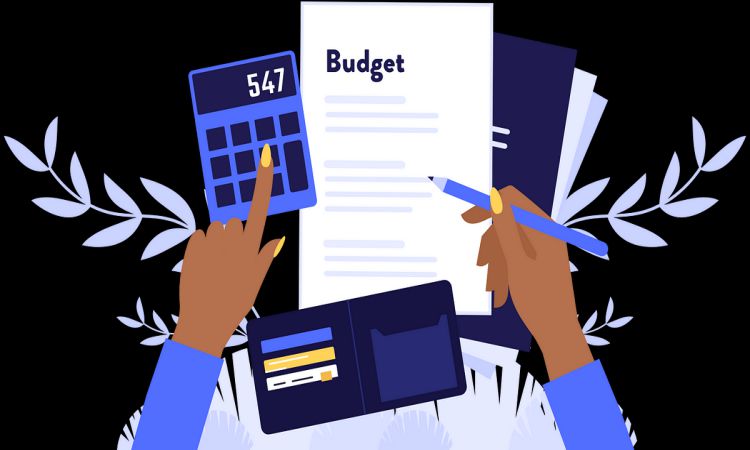 Personal finance management can be a daunting task, especially when it comes to budgeting. However, with the right approach, you can easily transform this challenge into a straightforward and rewarding process.
Personal finance management can be a daunting task, especially when it comes to budgeting. However, with the right approach, you can easily transform this challenge into a straightforward and rewarding process.
This comprehensive guide will walk you through the entire process of budgeting, from understanding its importance to implementing it effectively.
Understanding Budgeting
A budget is a financial plan, not a limitation. It’s a strategic roadmap that outlines your income and expenditures, providing you with a clear picture of your financial health. By consistently adhering to a budget, you can eliminate financial stress and pave the way toward achieving your financial goals.
Budgeting doesn’t mean you limit your dreams of purchasing something. Budgeting means paying attention to the priorities you need at that time. Many articles provide guidelines for budgeting our finances. For example, on statebudgetcrisis.org, you can find several articles about choosing your dream mountain bike, investing correctly, and various other guides.
The Importance of Budgeting
Budgeting is a critical tool for managing your finances. It helps you identify unnecessary expenditures, find potential savings, and plan for future expenses. Additionally, budgeting promotes financial responsibility and enables you to allocate funds toward your long-term goals effectively.
The Five-Step Budgeting Process
Creating a budget might seem overwhelming initially, but breaking down the process into manageable steps makes the task much more achievable. Here’s how you can create a robust budget in five steps:
Step 1: Document Your Income
The first step in the budgeting process is to list all your income sources. This includes your regular paychecks, as well as any additional earnings from side jobs or freelance work. Make sure you’re working with net income (income after taxes and other deductions), and create separate entries for each income source.
Step 2: Record Your Expenses
Once you’ve accounted for all your income, it’s time to track your expenses. This includes both fixed and variable expenses. Fixed expenses, such as rent or mortgage payments, remain the same each month, while variable expenses, like groceries or gas, may fluctuate.
Step 3: Calculate the Difference
After documenting your income and expenses, subtract your total expenses from your total income. This calculation should result in a zero balance, a concept known as zero-based budgeting. This doesn’t mean you drain your bank account to zero; instead, it signifies that every dollar you earn has a designated purpose.
Step 4: Monitor Your Spending
To ensure your budget is effective, it’s crucial to track your spending throughout the month. Regularly updating your budget with your actual expenses will help you stay accountable and prevent overspending. Moreover, it will provide you with insights into your spending habits, allowing you to adjust your budget as needed.
Step 5: Update Your Budget Regularly
Since no two months are the same, updating your budget regularly is vital. Before the start of each month, review and adjust your budget to account for any changes in your income or expenses. This proactive approach will help you handle month-specific expenses and keep your budget flexible and realistic.
Tips for Successful Budgeting
While creating a budget is essential, it’s the adherence to it that determines your financial success. Here are some tips to help you stay on track:
-
Document all your expenditures:
Even small expenses can add up over time. By documenting all your spending, you can identify areas where you might be overspending.
-
Avoid credit card debt:
If possible, only use your credit card if you can pay the full balance when the bill arrives. This will help you avoid interest charges.
-
Pay your bills on time:
Paying your bills promptly prevents late fees and other penalties.
-
Keep your savings separate:
It’s easier to save when your savings are separate from your spending money. Consider opening a savings account to make this process simpler.
Why Saving Money is Crucial
Saving money can be challenging, especially when expenses rise, and income remains stagnant. However, saving is essential for several reasons:
-
Emergencies:
Unforeseen expenses can arise at any time. Having savings can provide a financial cushion for such situations.
-
Large Purchases:
Whether it’s a new car, a vacation, or a down payment on a house, significant purchases require substantial savings.
-
Long-term Goals:
Whether you’re planning for retirement, funding education, or saving for a dream vacation, having savings can help you achieve these goals without resorting to debt.
The Role of Budgeting in Achieving Financial Goals
Budgeting is an invaluable tool for achieving financial goals. By providing a clear picture of your income and expenses, a budget enables you to allocate funds toward your financial objectives effectively. Whether you’re saving for a down payment on a house, planning a vacation, or building an emergency fund, a budget can make it happen.
Conclusion
Mastering the art of budgeting may seem challenging initially, but with discipline, commitment, and the right tools, it becomes a rewarding and empowering process. A well-planned budget not only provides you with control over your finances but also paves the way towards financial freedom. So, start your budgeting journey today and take a significant step towards achieving your financial goals.




